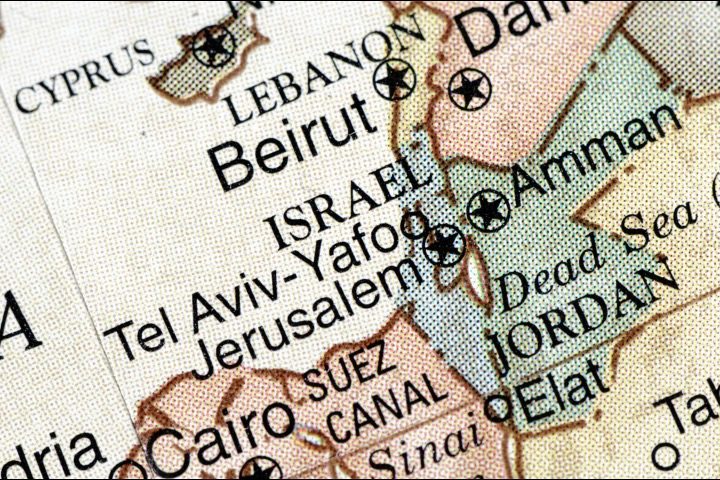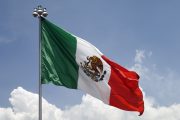
Lebanon hopes that Moscow will play a vital role in addressing present tensions in the Middle East, Foreign Minister Abdallah Bou Habib said after a meeting with his Russian counterpart, Sergey Lavrov, at the UN headquarters in New York on January 22.
During the talks with Bou Habib, Lavrov underscored that other countries’ involvement, including Lebanon’s, in current fighting between Israeli forces and Palestinian terrorist group Hamas was “unacceptable,” as per the Russian Foreign Ministry press service. He further urged for “an immediate ceasefire” in Gaza, stating that the humanitarian crisis in the enclave must be tackled urgently.
The Russian minister also assured his counterpart of Moscow’s commitment to Lebanon’s sovereignty and territorial integrity, the ministry continued.
Bou Habib voiced his hope that Moscow will “play an important role” in diffusing tensions in the region. “Now, it is difficult to talk about any peace process…. A war is currently being waged [in Gaza], and armed clashes with the Israeli army in southern Lebanon are taking place,” he told the Russia-1 broadcaster.
However, Bou Habib declared that he was confident that “if there is any opportunity for peace, Russia will work towards establishing peace in any case.”
On January 22, the Lebanese foreign minister cautioned Israel against starting a large-scale conflict with his country, warning that it “won’t be a picnic for them.” The diplomat was remarking on a statement by the Israel Defense Forces (IDF) chief of staff, Lieutenant General Herzi Halevi, who asserted last week that the odds of a conflict with Beirut “in the coming months is much higher than it was in the past.”
According to TASS, Bou Habib stated, “I hope they [the Israelis] understand that a war with Lebanon won’t be a picnic for them.”
Israeli forces are “increasing readiness for fighting in Lebanon, we have a lot of lessons from the fighting in Gaza,” Halevi previously revealed while attending IDF drills simulating an offensive against Israel’s northern neighbor.
IDF commanders have made similar statements since the start of the operation in Gaza in response to the incursion into Israel by Hamas on October 7, Bou Habib noted, stating that “we don’t welcome such rhetoric.”
There have been almost daily exchanges of fire between the Israeli military and Lebanon’s Hezbollah armed group in the border area since the IDF began its campaign in Gaza in response to the brutal attacks by Hamas on Israeli civilians on October 7 last year. In those attacks, Hamas killed around 1,200 people and took some 240 hostages.
Based on statements by Gaza’s Health Ministry, the death toll from the Israeli strikes and ground offensive in the Palestinian enclave has exceeded 25,000. The UN said last month that 85 percent of Gaza’s population has been internally displaced, while 60 percent of the enclave’s infrastructure has been damaged or destroyed.
Despite describing itself as being “at war” with Israel, Hezbollah has insisted that its actions are meant to hold up IDF forces to prevent their deployment to Gaza, and the IDF have been involved in tit-for-tat exchanges of fire with Hezbollah militants since the start of Israel’s war with Hamas in October. Hezbollah’s recent targeting of an Israeli intelligence base with missiles after Israel allegedly killed Hamas deputy leader Saleh al-Arouri in a drone strike in Beirut several days earlier indicated a considerable escalation between the two, as Hezbollah promised to avenge al-Arouri’s death.
In early January, The Washington Post reported that a secret assessment from the Defense Intelligence Agency (DIA) in Washington disclosed that Israeli forces would find it “difficult to succeed” in a two-front war against Hamas in Gaza and Hezbollah in Lebanon.
While Israeli Prime Minister Benjamin Netanyahu has vowed to make a “fundamental change” to the security situation along the Lebanese border, American officials have privately cautioned him against opening a second front. “If it were to do so, a new secret assessment from the Defense Intelligence Agency (DIA) found that it will be difficult for Israel Defense Forces (IDF) to succeed because its military assets and resources would be spread too thin given the conflict in Gaza,” the Post reported, quoting two anonymous officials and a classified report by the DIA.
Israel’s military typically depends on reservists to swell its ranks in times of conflict, as it is much smaller during peacetime. The IDF called up around 360,000 reservists when the war with Hamas began, although a senior Israeli official told Reuters that an undisclosed number would soon be discharged from duty.
For its part, Hezbollah has been vocal about its role in the Israeli-Hamas conflict, with the group’s leader, Hassan Nasrallah, claiming in November that his forces had tied up around a third of Israel’s troops along the Israel-Lebanon border, preventing them from being deployed to Gaza. He added that Hezbollah’s continued clashes with the IDF were giving rise to “a state of anxiety, anticipation, panic, and fear among the enemy’s political and military leadership.”
Various U.S. officials told the Post that they fear Netanyahu may target Hezbollah in order to salvage his political career. The Israeli leader encountered widespread protests before the start of the war, and was condemned afterwards for failing to preempt Hamas’ October 7 assault.
“A full-scale conflict between Israel and Lebanon would surpass the bloodshed of the 2006 Israel-Lebanon war on account of Hezbollah’s substantially larger arsenal of long-range and precision weaponry,” the paper stated, citing officials who also warned that the militant group could conduct missile attacks on Israeli petrochemical plants and nuclear reactors.
Washington also worries that such a conflict could draw in Iran — Hezbollah’s main backer — and ultimately the U.S., the paper’s sources said.
U.S. Secretary of State Antony Blinken spoke in Jordan in January while visiting other countries in the region. “We have an intense focus on preventing this conflict from spreading,” he said, before meeting Jordanian King Abdullah II and Foreign Minister Ayman Safadi.


